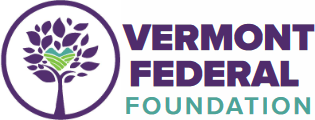Homebuyers often use mortgage calculations and minimum down payment requirements to determine whether they are ready to purchase a home. But there's another figure that's frequently overlooked - closing costs. If you fail to plan for these additional expenses, you could underestimate the cash reserves needed to finalize the purchase of your desired home. Fortunately, you can estimate closing costs before making an offer and possibly reduce them before buying the house.
What Are Closing Costs?
Closing costs are the transaction fees associated with buying a property. They typically include loan application fees, title search, title insurance, appraisal and survey fees, real estate commissions, recording fees, and more. While a portion of these costs may be shared with the seller, the buyer pays most of the closing costs. Payment is due when paperwork is signed and the home legally changes ownership.
How Much Should I Budget for Closing Costs?
Closing costs, which are separate from the down payment, are usually between 2-5% of the purchase price. Fees vary by mortgage lender and are typically influenced by the mortgage loan, state requirements, and the home geographic location.
A real estate attorney typically supplies you with the Closing Disclosure three days before the official closing date. This document includes any updates or changes to the figures listed in the Loan Estimate. It should clearly state the exact dollar amount you must pay to close on the home as scheduled.
4 Ways to Reduce Closing Costs
Market conditions may dictate how much you can reduce total closing costs on a home purchase. Review the Loan Estimate form and plan to:
- You can choose your vendors for home insurance, home inspection, and real estate attorneys to reduce the closing costs
- If possible, schedule the closing near the end of the month to lower the amount of per diem charges, such as loan interest and property taxes
- Vermont has a tax prebate (reduction of property taxes). You can find out if the seller has a current tax prebate if you review the property's tax bill. You may have to reimburse the sellers for the prorated amount of the state payment for the remainder of the year. This can be due at closing, or can be negotiated between both parties. Don't worry, the next year you can apply and see if you qualify for the tax prebate.
- When a home purchase closes, the home buyer is required to pay the Vermont Property Transfer Tax. The buyer is taxed at a rate of 0.5% of the first $100,000 of the home's value and 1.45% of the remaining portion of the value. Ask Vermont Federal Credit Union how a VHFA mortgage program may save you up to $825 in property transfer taxes.
Let Vermont Federal help calculate the closing costs of your dream home. Apply for a low-interest rate mortgage*.
Vermont Federal Credit Union is a $900 million-plus full-service, not-for-profit, cooperative financial institution that has served Vermonters for more than 70 years, with eight locations currently serving over 50,000 members. Members are part of a cooperative, meaning they share ownership in the Credit Union and elect a volunteer board of directors. Vermont Federal Credit Union provides membership to anyone who lives, works, worships, or attends school in Vermont. Vermont Federal Credit Union is committed to supporting its communities and helping Vermonters prosper, no matter where they may be on life’s journey. Learn more about Vermont Federal Credit Union.
*Subject to credit approval.








